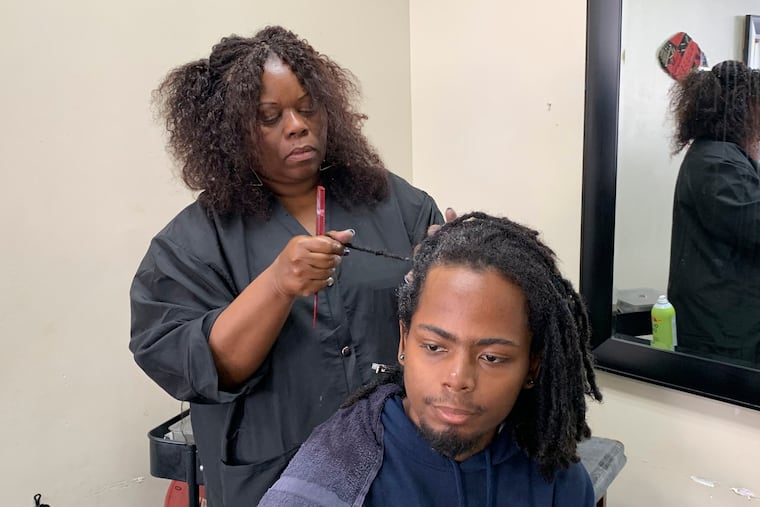Pa. lawmakers promote CROWN Act legislation banning discrimination against natural hair styles
The Pennsylvania bills would amend the Pa. Human Relations Act and clarify the term “race” to include traits such as hair texture.

Only days after the U.S. House passed legislation to provide federal protection from hair discrimination in schools and employment, a group of Pennsylvania lawmakers held a virtual news conference Thursday to promote their own bills.
Known as the CROWN Act, the House bill, passed Monday, would ensure that people cannot be discriminated against for choosing to wear their hair in such styles as Afros, braids, locs, twists, or knots. The acronym stands for Create a Respectful and Open World for Natural Hair. The legislation still has to be approved by the Senate.
The Pennsylvania bills, introduced in the state House in July and earlier this month in the Senate, would amend the Human Relations Act and clarify the term race to include traits such as hair texture and protective hairstyles.
So far, seven states have passed similar CROWN laws, and State Reps. Joanna McClinton and Summer Lee and State Sen. Vincent Hughes vowed to make Pennsylvania the eighth.
The officials cited cases including that of Chastity Jones, an Alabama woman who had a job offer as a customer service representative rescinded when she refused to cut her dreadlocks in 2010, and Andrew Johnson, a high school wrestler in New Jersey who was told he could not compete unless his dreadlocks were cut on the spot in December 2018.
“This is just another way Black and brown people are being victimized for embracing their ethnic roots and going against what society has deemed normal,” McClinton, the House Democratic caucus chair, said.
McClinton, who represents part of Philadelphia and Delaware County, said that for years, Black people have had to consider the consequences of wearing their hair in natural styles, which have been deemed as unprofessional by some employers.
She and others said Black people should not be forced to undergo drastic changes by using either heat and straightening combs or chemical-based permanents. Both methods damage the hair and scalp.
» READ MORE: Wrestler Andrew Johnson forced to cut dreadlocks to avoid losing N.J. high school match
“For too long, hair discrimination has been the acceptable form of discrimination as we moved from Jim Crow to the civil rights movement," said Lee (D., Allegheny).
“You can’t fire me because I’m a Black woman, or gay or a trans person, but there are subtle ways, and hair discrimination is one of them.... We can’t afford to leave any more loopholes for systemic discrimination.”
» READ MORE: Philadelphia councilmember introduces bill to ban discrimination based on natural hairstyles
Adjoa B. Asamoah, ABA Consulting founder and CEO, who has spearheaded the fight to get CROWN Act laws passed across the country, joined the news conference.
“There is a longstanding history and practice of racial discrimination based on hair in the United States.” said Asamoah, a Temple University graduate.
In March, Philadelphia City Councilmember Cherelle L. Parker introduced a bill to make it illegal to discriminate against African Americans who wear their hair in natural styles.